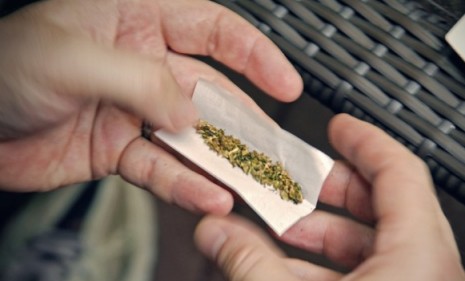Medicinal 'magic mushrooms': The new Prozac?
Why psychedelic drugs are returning as a legitimate treatment for depression

A free daily email with the biggest news stories of the day – and the best features from TheWeek.com
You are now subscribed
Your newsletter sign-up was successful
Marijuana isn't the only street drug doctors are using to treat ailing patients—a growing movement in the medical world is embracing hallucinogens as a treatment for depression. The drug psilocybin, a key ingredient in the recreational drug known as "magic mushrooms," and other mind-bending drugs fell out of favor with regulators in the 1960s, but doctors believe modern culture is ready to take another look at their medicinal value. Here, a quick guide to the 21st-century push for therapeutic psychedelics:
Which problems do psychoactive drugs treat?
Depression tops the list. But researchers have begun testing the drugs' effects on other mental problems, including obsessive-compulsive disorder, end-of-life anxiety, drug and alcohol addiction, and post-traumatic stress disorder in soldiers.
The Week
Escape your echo chamber. Get the facts behind the news, plus analysis from multiple perspectives.

Sign up for The Week's Free Newsletters
From our morning news briefing to a weekly Good News Newsletter, get the best of The Week delivered directly to your inbox.
From our morning news briefing to a weekly Good News Newsletter, get the best of The Week delivered directly to your inbox.
Is psilocybin the only hallucinogen under consideration for medical use?
No. While psilocybin has sparked the most interest, other drugs, like LSD and MDMA ("Ecstasy"), have also gained support in the medical world.
Why are these drugs getting a second chance?
A combination of increased acceptance of drug use in society and newly instituted, "rigorous protocols and safeguards," says John Tierney in The New York Times, have allowed scientists to reinvestigate the drugs' medicinal benefits. And so far, the results have been encouraging, with many test subjects reporting profound improvements in their mental states after only one use of psilocybin.
A free daily email with the biggest news stories of the day – and the best features from TheWeek.com
Who's conducting the studies?
A wide range of medical researchers and universities, like Johns Hopkins, the University of Arizona, Harvard, New York University, and the University of California, Los Angeles. Nonprofit groups, like the Heffter Research Institute and the Multidisciplinary Association for Psychedelic Studies (MAPS) are also supporting research into the drugs.
Is it safe to self-medicate with psychedelics?
Absolutely not. Aside from the highly illegal status of these drugs, psilocybin, LSD, and other psychedelics can have a wide range of effects, depending on the environment in which users consume them. Because of this, researchers tightly control their test subjects' environments while administering the drugs, and aid them through periods of anxiety sometimes brought on by their use.
Source: The New York Times, Politics Daily, Washington Post
-
 5 cinematic cartoons about Bezos betting big on 'Melania'
5 cinematic cartoons about Bezos betting big on 'Melania'Cartoons Artists take on a girlboss, a fetching newspaper, and more
-
 The fall of the generals: China’s military purge
The fall of the generals: China’s military purgeIn the Spotlight Xi Jinping’s extraordinary removal of senior general proves that no-one is safe from anti-corruption drive that has investigated millions
-
 Why the Gorton and Denton by-election is a ‘Frankenstein’s monster’
Why the Gorton and Denton by-election is a ‘Frankenstein’s monster’Talking Point Reform and the Greens have the Labour seat in their sights, but the constituency’s complex demographics make messaging tricky
